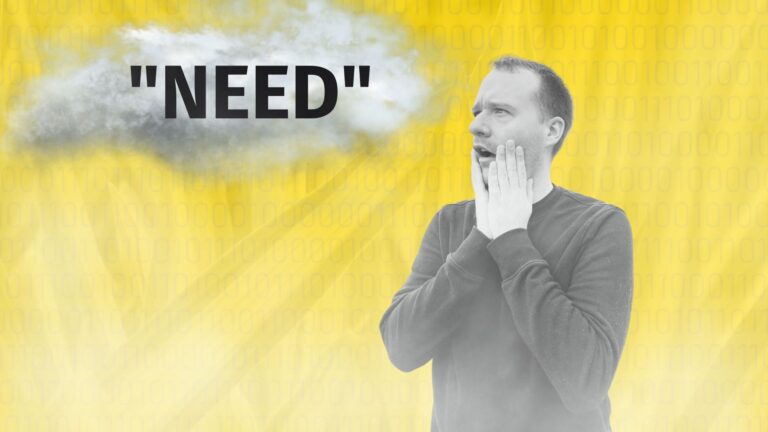$575 million. In 2003, Markus Frind built the dating site Plenty of Fish in two weeks as part of a bid to bolster his résumé and to learn ASP.NET, and it gained traction unexpectedly, so he grew it into a company of 75 people in twelve years. Then, at the age of 36, he sold the company to Match for $575 million dollars and managed to do it all without venture capital funding. What was his recipe? It appears it was a little bit of effort, a very healthy dollop of luck, several quarts of timing, and a big ol’ can of “Let’s just run with this and see where it goes.” At the end of the journey, Markus walked away with about $47 million for every year he built Plenty of Fish.
$8 million. That’s how much Avi Schiffman purportedly turned down in ad money after his coronavirus information site ncov2019.live started seeing millions of daily visitors. According to 17-year-old Shiffman, “I am spending most of my free time working on it.” Having started the site in December of 2019, now mere months later it has been visited my more than a hundred million visitors hungry to learn up-to-date information about this novel coronavirus impacting our lives so directly right now.
This could be a stark juxtaposition of greed versus altruism or, depending on perspective, savvy business sense versus naiveté, but maybe there’s a different way of seeing it. Somewhere adjacent to these two examples are the millions of other software developers who have labored for years or decades without the impact either have had. Both stories speak to the value of an entrepreneurial spirit, of timing, of trying something without overthinking it. Both stories are also dripping with survivorship bias. For every site or app that succeeds and gets a New Yorker story written about their founder, there are a hundred thousand more that fade into obscurity.
The coronavirus has laid bare in my mind this complex relationship between effort, value, and reward. The blue collar workers of the world are practically screaming in frustration at the hypocrisy of being perceived as menial laborers for decades and then being labeled “essential employees” when the excrement hit the fan. Over the course of decades, they have seen their unions busted, their pay decreased, and their benefits stripped, all while white collar workers such as myself have been lauded as the darlings of the “information economy” intangibly by the media and tangibly through compensation. And now all of a sudden it’s clear we need them so badly? The frustration is palpable.

Despite how truly essential the person who stocks the shelves at the supermarket is, it would be madness in a model of pure capitalism to pay them any more than the slice of worth in the supply chain that they provide. For a single can of beans, the profit is split many ways. The seed manufacturer, the farmer (well, farm conglomerate, more than likely) that grows it, the picker, the canner, the truckers that move it, the warehouse employee, the checkout clerk, and every auxiliary service like HR, marketing, and cleaning staff along the way needs to take a little bit off the top of that $1.69 can of beans. And, unforgettably, the shareholders.
What is fundamentally missing for grocery stockers is the capability to scale. This is why software development can be so profitable, why superstars exist, why football players can be paid millions of dollars a year. While a supermarket employee can only stock so many shelves, the person that develops the next great app feature can see that labor’s value realized by distributing it to millions of people in seconds. If the value to each person who uses it is a dollar, that could mean millions of dollars of value created literally overnight.
But just because value is created doesn’t mean it’s captured by the person who made it. Every volunteer who contributes to Wikipedia could be providing tens, hundreds, or thousands of dollars worth of value for every piece of information they contribute. Or not. It’s difficult to calculate value when it’s given away. The same goes for software developers. The line of code itself is nothing but metaphorical ones and zeroes that only exist as electrons stored or not stored in transistors somewhere deep and microscopic within a stick of RAM. The value it creates depends entirely on who is seeing the outcome of that line of code and what it’s doing for them. Whether that value is given away or monetized, as in the cases of Avi Schiffman and Markus Frind respectively, does not change the amount of value being created.
When I see “Software Developer (Level II) – $120k Salary” and then “Senior Software Developer (Level III) – $140k Salary” on Indeed, I wonder how those salaries are determined. I have a hunch that most software developers believe their worth is based on “what the market will bear” or what other software developers are being paid. And, sadly, that also seems to be the case for hiring managers. With the blind leading the blind, software developers are hired at “competitive rates” and given raises based “on performance,” with that performance often having nothing to do whatsoever with their impact on the world at large.
In the last quarter of 2019, Microsoft hauled in about $33,000,000,000 in revenue, a typical return for them. It certainly does appear that Microsoft is creating value and being rewarded financially. They have about 148,000 employees, so using back-of-the-napkin math, that means that they bring in about $892,000 per year for every manager, sales person, marketer, software developer, and custodian. Yet, that only represents the financial reward. Microsoft affects the world in many ways, such as providing the cloud infrastructure that enables M-KOPA to light up homes in Africa with solar power. They provide software and infrastructure used by schools, businesses, and militaries, Republicans, Democrats, PETA, and cows on farms. Microsoft builds things that have intrinsic value far beyond money, and the outcome of that value is often benign, sometimes positive, sometimes negative, and always subjective.
How crudely value is represented by money. Money is really just a vehicle for approximate value, and how it measures value is not finely tuned. Which is more valuable, holding your wife’s hand or owning a Louis Vuitton watch? Money and value may be related, but they certainly aren’t equivalent. I’ve seen software engineers working long and stressful hours to build things even they don’t see as useful. It boggles the mind. In the short time we have on this earth, who wants to continue pour their lives into something that doesn’t matter to them? It often comes down to that paycheck, a lousy single data point of indicated value. The world is full of ways of measuring value, and rewards cannot always be given via direct deposit. Avi Schiffman, I’m sure, sleeps very soundly at night knowing he’s helping millions of individuals get up-to-date information about the coronavirus. The satisfaction of building something and watching it be helpful for millions of others cannot be simply bought. Yet people still need to eat and have a roof over their head. Thankfully, there does not need to be a complete separation between financial and other types of reward. I refuse to accept that there is an intrinsic trade-off between meaningful work and capturing it’s value. You can eat your cake and have it, too.
This mindset about the relationship between effort, value, and reward contributed greatly to my interest in joining Archer First Response Systems. I was presented with an opportunity where I can help create a system that has a chance to save lives at scale, while providing for my family, all at a similar level of effort as I’ve put in at previous positions. I am able to balance that equation of effort, value, and reward, and I’m not talking purely in terms of finances. I could work somewhere and create and capture a lot of value as measured in dollars with minimal effort, say in creating the next big freemium mobile game, but it certainly would not be the type of satisfying value I crave to create. What I personally care about is improving the long-term circumstances of the world and the people who live in it. If we succeed with our stated goal of halving the number of cardiac arrest fatalities in the United States by 2030 at Archer, that reward will be very valuable to me.
What we do matters. I want to speak to my fellow software developers and say life is too short, so work on things that matter to you. You have an incredible super power, the power to make things that can change the world overnight. Think critically about what you care about. What do you want to see different in the world? Don’t think of value in purely financial terms. Be judicious about how you spend your time and contemplate deeply about the relationship between the effort you put in, the value you create, and the rewards you receive for doing it. Your development time, in and of itself, is worth absolutely nothing. What you do with it makes all the difference in the world.



